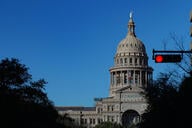You have /5 articles left.
Sign up for a free account or log in.

Wikimedia
The Association for Behavioral and Cognitive Therapies last week formally expressed regret for the field’s past involvement in what’s now known as conversion therapy. But the written apology—which acknowledged that therapists continued to study conversion therapy in LGBTQ people even after the American Psychiatric Association first said in 1973 that same-sex attraction was not a disorder, and after the association passed a similar resolution a year later—fell short for some.
One criticism: members felt that the statement shouldn’t have just encouraged therapists to “educate themselves about the history” of conversion therapy in their field. Rather, these critics thought that the statement should have named past practitioners of conversion therapy—namely those who signed the apology statement in their capacity as past presidents of the association.
These discussions continue, raising questions about the extent to which past research can be excused as a product of its time and—unexpectedly—questions about student privacy.
A Detour Into Privacy
Starting with the latter set of issues, one of the academics who criticized ABCT’s statement publicly was Aaron Fisher, an associate professor of psychology at the University of California, Berkeley. On Twitter, he pointed out that a 1979 paper on conversion therapy for transgender individuals co-written by David Barlow, a past president of ABCT who signed the apology letter, was still published and available for download via the major journal that is now called JAMA Psychiatry. (The paper says its findings “point to the possibility of psychosocial intervention as an alternative to surgery in the treatment of transsexualism.”)
In a public response to Fisher that she later deleted, Bonnie Brown, a nurse who is the head administrator of Boston University’s Center for Anxiety and Related Disorders (of which Barlow is the founder and director emeritus) said this: “If you knew [Barlow], you would understand his regret. No need to publicly crucify. Interesting that you applied to that graduate program years ago but were not accepted. Guess you weren’t feeling that strongly then? Beliefs change over time.”
Fisher then said that Brown had apparently “dipped into” BU’s admissions records to disclose information about him, so as to retaliate against him for discussing someone else's published research.
“Strikes me as a pretty egregious abuse of power,” he added.
Numerous onlookers told Brown that she was wrong to disclose private admissions data under any circumstance. Some suggested that it was a violation of the set of federal student privacy laws known as FERPA.
Brown tweeted back at Fisher that she “didn’t dip,” and said that he'd “interviewed” with the lab where she worked at BU. “Full of unfounded accusations, aren’t you?” she said.
Fisher told Inside Higher Ed Monday that he did apply to BU but never interviewed there because he hadn't been asked to do so. In retrospect, he said, he was seriously “underprepared and underadvised” for the graduate school application process back in 2005 and was consequently asked to interview at just one of the institutions to which he’d applied, Pennsylvania State University, which he attended.
If Brown didn’t “dip," it remains a mystery as to how she knew Fisher applied to BU and was rejected: Brown did not reply to a request for comment, nor did her husband, Timothy Brown, who is a professor of psychology at BU, where Barlow is a professor emeritus.
Setting that question aside, is publicly discussing admissions decisions illegal? The answer here is clearer: no, as FERPA applies only to records of matriculated students, not potential students who are rejected or those who are accepted but do not end up enrolling.
One campus security expert who spoke on background (who did not want to be quoted in a story involving BU), said that another caveat to FERPA is that it only protects information gleaned directly from student records, not information about a student heard from someone else. Except in cases of legal orders, such as subpoenas, institutions generally treat admissions records for non-students as if they're private anyway, as a best practice, however, the expert said.
Rachel Lapal Cavallario, a BU spokesperson, said that she was previously aware of the incident. “While this exchange is not a violation of FERPA as Mr. Fisher was never a Boston University student, we do take matters of privacy seriously. We will further examine this matter to learn more,” she said.
As for Brown’s point on opinions changing over time, Fisher told Inside Higher Ed that while he was interested in Barlow’s research on neuroticism when he applied to BU, he didn’t know about Barlow’s conversion therapy research until years later.
“Like many graduate school applicants, there were a lot of things I didn’t know when I was applying,” he said. In any case, Fisher said the purpose of his original tweets about the ABCT statement was to argue that it “effectively launders Barlow et al.’s behavior by masking their involvement and giving them the appearance of progressive reformers.”
Disclaimers vs. Retractions
Fisher said that Barlow, along with two other past ABCT presidents who signed the letter having published their own conversion therapy research, “should have issued their own personal apology.”
Moreover, he said, “I believe much of their work on conversion therapy and related topics should be retracted due to the harmful effects the work has had and continues to have.”
ABCT’s statement does not address retraction but says that the organization’s publications committee has been tasked with the creation of “disclaimers,” to be added to flagged articles previously published in ABCT journals.
The ABCT statement itself hints at what might be included in such a disclaimer, denouncing “the ongoing use of so-called ‘conversion therapies’ given (a) the lack of empirical support regarding for such interventions, (b) existing evidence regarding the significant risks associated with these practices, and (c) the fact that [sexual and gender minority] identities are normal expressions of human diversity and not a type of psychopathology that needs to be ‘treated.’”
More specifically, the apology continues, “research indicates that so-called ‘conversion therapies’ and attempts to change sexual orientation and/or gender identity are associated with increased internalized stigma and discrimination, self-harm and -hatred, decreased self-esteem, depression, anxiety, isolation from social support, and suicide attempts.”
Barlow previously expressed regret for his role in conversion therapy in a 2016 book he edited called Introduction: A Career in Psychology (Routledge), calling it the “most regrettable initiative in my clinical research career.” Barlow wrote that decades earlier he’d treated and evaluated “individuals with what came to be called paraphilias but what was then called sexual deviation,” including “participants presenting with same-sex arousal patterns with consenting adults.” At the time, he said, “homosexuality was considered a disorder in all systems of nosology and, under extreme pressures from society and the associated stigma, these individuals sought out treatment; so very few clinicians even gave it a second thought.”
“Looking back on that period from today’s vantage point it is very hard to even conceive how we could not have realized the inherent conflicts in attempting to treat harmless consenting adult behavior involving love and affection," he wrote. "But, the lesson learned by most of us is that definitions and classification of psychopathology do not represent qualitatively different entities but rather are embedded in the continually shifting landscape of cultural values and mores and that these ethical and moral issues must be transparent, debated and occupy a central role in all of our endeavors.”
Barlow said in an interview Monday that he wasn’t closely involved in the drafting of the ABCT apology statement but referenced his earlier words of regret. He said that he’d published “maybe eight” papers on conversion therapy in his career of some 650 articles, and that his work in this area had been based on people asking him for this kind of therapy. (For context, Gerald Davison, a professor of psychology and gerontology at the University of California and a past ABCT president, is widely credited with arguing in a 1974 address to association members that they should not engage in conversion therapy, even if patients asked for it, because doing so sent mixed, harmful messages about sexuality.)
Barlow also said that he’d worked closely with Brown and called her a longtime friend.
Regarding Brown’s assertion that he feels regret for his role in conversion therapy research, Barlow said, “I think regret is the best word. I wish I hadn’t, knowing what I know today. I wish I hadn’t done that.”
As for whether his articles should be retracted, Barlow said no. But he proposed a broader “disclaimer” solution than the one pertaining to ABCT’s journals alone: that publishers in general find a way to adding warnings to these papers indicating that they do not reflect current science.
“The only reason you can really retract a journal article, based on my understanding, and I’ve been an editor myself, is if you have some evidence that the data was manipulated or fabricated or false, and the science is wrong,” he said. “I don’t think you can retract an article because times have changed, or have a different view of it now and you don’t like the conclusion. But you can put a disclaimer on it. And that disclaimer is that we know a lot more about this now. It’s not that the science then was faulty. It’s that we have additional science that now shows that engaging in this type of conversion activity does more harm than good.”
Noting a recent instance in which a group opposing legal bans on conversion therapy had cited his decades-old work, alongside more recent research on sexual fluidity, to “disingenuously” support its own arguments, Barlow said, “Seeing that people are taking research and misinterpreting or using it to kind of suit their own purposes—in other words, not really using it the way it was intended—I think there probably should be like something like a ‘black box’ warning.”
Steven Hayes, Foundation Professor of Psychology at the University of Nevada, also signed the ABCT statement as a past president who has published research on conversion therapy. He said via email Monday that his involvement in this work was limited to one case during his medical internship, which he wrote up several years later, in 1983, as part of broader study. He also said he’s published since in the area of gay rights, including on reducing “self-stigma” around sexual orientation.
Still, Hayes said he posted a video apology earlier this month because he felt it was needed.
“All of this work was ethical and fit with the [APA's Diagnostic and Statistical Manual of Mental Disorders] categories and treatment standards of the time, but I believe that this case was morally wrong,” he said of the conversion therapy research.
On retraction, Hayes said he’d asked the editor of the journal that published the work if it can be retracted.
“There is no precedent for moral retraction, and she said she would have to research the topic,” Hayes said of that conversation. “I think we as a field need to have a thorough conversation about that issue, and I look forward to that dialogue.”
Jessica Peters, an assistant professor of psychiatry at Brown University and member of ABCT, also argued for retraction.
"The research on conversion therapy, regardless of the context in which it initially happened or intent behind it, has caused immeasurable damage to the LGBTQ+ community," she said Monday, adding that it continues to be cited as evidence in support of this ongoing practice. "While medical associations have uniformly denounced the practice and some much needed state-level legislation passed against it, there are many places in the world where these therapies are being used to traumatize people right now. While nothing can undo what has happened, retraction by the authors sends an unambiguous message that these works should in no way influence modern practice."





